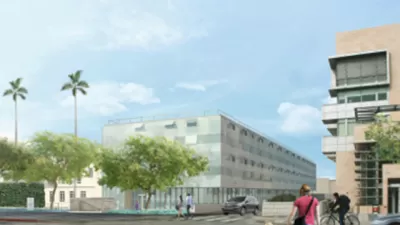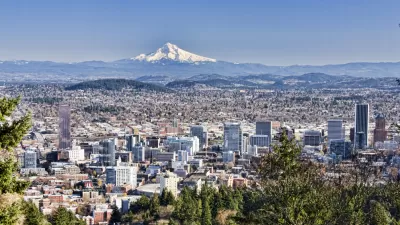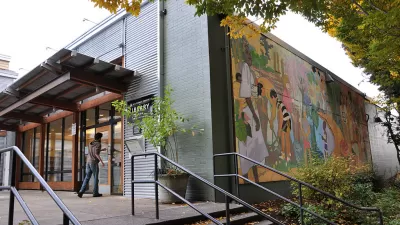Sustainability
is a slippery subject - with the meaning and application changing depending on
who is talking, listening, or taking action. For the eco-efficiency focused
quantifiers, sustainability is about using fewer resources, or getting more
value out of the ones we are already using. Another perspective deploys sustainability
as an integrated management tool that tries to keep bottom line considerations
in check through introducing ecological and equity factors into the
equation. A third approach uses sustainability to define an ideal state
of affairs that may emerge at some future time.
Applied
to urban planning, these schools of thought are manifest as ecological
footprint studies and climate action plans, sustainability indicators and
indexes, and sustainability chapters in general plans. This is all
valuable and important work. But it does little to answer several fundamental
questions: 1) what does sustainability look like on the ground, and 2) just how
sustainable can a city, or a neighborhood, be anyway?
This
quarter (Spring 2012), my colleague Ted Bardacke and I will work in with a
group of UCLA urban planning graduate students in attempt to answer these
questions, at least in part. The
objective of the Green Urbanism Studio course is to develop a proposal for the
redesign a Los Angeles neighborhood that achieves a high level of sustainability.
But what should the performance standard be?
We
decided to turn to the Living Building Challenge, as the Challenge was
developed to push the envelope in green building from being "less
bad" to "net positive." There are a handful of LBC
certified buildings now along with some evocative efforts to explore what
happens when LBC is applied at an urban scale, most notably the results of the
Living City Design competition http://www.metropolismag.com/story/20111115/image-control.
We
plan build upon this work in the studio course, through a thorough and rigorous
application of the LBC imperative and petal performance criteria to prepare a
proposal for the redesign and development of an existing Los Angeles
Neighborhood. By using the "high bar" standard of LBC we expect to
generate the full suite of studio course outcomes: unexpected challenges, frustrations,
breakthroughs in thinking, and, we hope, the articulation of concepts and
strategies that can accelerate the transition from current planning practice to
a net positive model, thus shortening our stay in the land of less bad.

Maui's Vacation Rental Debate Turns Ugly
Verbal attacks, misinformation campaigns and fistfights plague a high-stakes debate to convert thousands of vacation rentals into long-term housing.

Planetizen Federal Action Tracker
A weekly monitor of how Trump’s orders and actions are impacting planners and planning in America.

In Urban Planning, AI Prompting Could be the New Design Thinking
Creativity has long been key to great urban design. What if we see AI as our new creative partner?

Pedestrian Deaths Drop, Remain Twice as High as in 2009
Fatalities declined by 4 percent in 2024, but the U.S. is still nowhere close to ‘Vision Zero.’

King County Supportive Housing Program Offers Hope for Unhoused Residents
The county is taking a ‘Housing First’ approach that prioritizes getting people into housing, then offering wraparound supportive services.

Researchers Use AI to Get Clearer Picture of US Housing
Analysts are using artificial intelligence to supercharge their research by allowing them to comb through data faster. Though these AI tools can be error prone, they save time and housing researchers are optimistic about the future.
Urban Design for Planners 1: Software Tools
This six-course series explores essential urban design concepts using open source software and equips planners with the tools they need to participate fully in the urban design process.
Planning for Universal Design
Learn the tools for implementing Universal Design in planning regulations.
planning NEXT
Appalachian Highlands Housing Partners
Mpact (founded as Rail~Volution)
City of Camden Redevelopment Agency
City of Astoria
City of Portland
City of Laramie






























